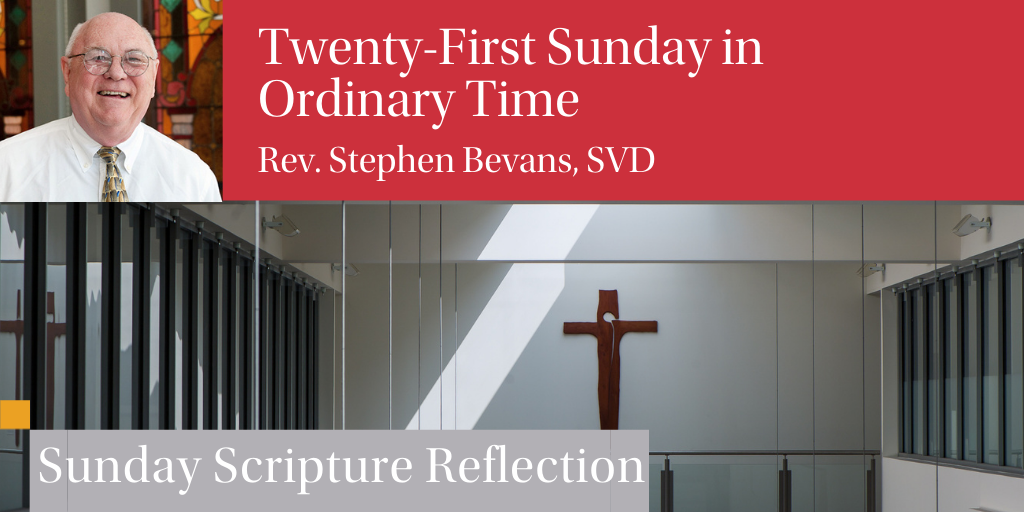

Readings:
Reading 1: Joshua: 24:1-2a, 15-17, 18b
Responsorial Psalm: Psalm 34:2-3, 16-17, 18-19, 20-21
Reading 2: 1 Ephesians: 5:21-32 or 5:2a, 25-32
Gospel: John: 6:60-69
Silent “Words of Eternal Life”
“Wives should be subject to their husbands, as to the Lord.” It is because of these words that many Catholics have basically left the church, or pay little attention to it anymore. For many of them — especially women and young people — these are NOT “words of eternal life.” Indeed, they are rather words of subjugation, words of domination, words that, often quite literally, result in death, not life.
Never mind that these words are preceded by the phrase “be subordinate to one another out of reverence for Christ.” Interpreters down through the ages have cited Ephesians’ advice to wives as advice that becomes the basis of the church’s — and society’s — treatment of women: not listening to their voices, not respecting their experience, not accepting the gifts that they can bring to society, and the church and its ministry. Even worse, in telling wives to be subject to their husbands, husbands in the past — and even now in some places — have been given license to treat their wives as property, or to abuse them with little or no punishment. Although interpreters today — especially feminist biblical scholars — point to the lines in today’s second reading as attempts to move away from Jesus’ original vision of equality for his disciples, we keep reading this passage when we celebrate weddings and keep using it to justify the gender bias that is rampant in both secular and ecclesial circles.
Catholics leaving the church makes me sad, but in many ways, I can’t blame them. When our church fails to nourish us, fails to connect with developments within culture and history like the emergence of gender equality, then people are right to vote with their feet. The church is supposed to, like Jesus, offer people “words of eternal life,” not bolster an outdated and sinful anthropology that subordinates women to men. The church — all of us, not just our leaders — needs to pay attention to the Holy Spirit, who speaks to us in the sense of faith that all our members have, even those who are walking away.
What I have written here may sound like a “hard saying. Who can accept it?” How can we see people leaving the church as the voice of the Spirit? But it is just as hard a saying as Jesus telling the people in Capernaum that he gives his flesh and real food and his blood as real drink for the life of the world. Jesus calls us, in the words of Canadian novelist Rudy Wiebe, to conversion and repentance — which is “not feeling bad but thinking different,” imagining the possibility of a different, transformed world. Maybe, like Jesus’ words about the Eucharist, the silent words of people leaving the church, are really “words of eternal life.” Maybe, like Joshua in our first reading, we have to proclaim that, indeed, “we will serve the Lord.” We will serve by committing ourselves to work for equality — within our hearts, our church, and our world — and against sexism, racism, or any kind of “ism” that demeans our sisters and brothers. We will serve by listening to the voice of all people in the church, even those who are walking away, and even those who now profess to be “nones,” and especially to youth and people of color.
Only Jesus has the words of eternal life, and his words are words not of subordination of one to the other, but subordination in service to one another. Jesus’ words of eternal life call us to wash each other’s feet, to love one another as he loved us. When we do this we touch the flesh of Christ, we are nourished by his body and blood, and celebrate his presence in the Eucharist. Maybe this is the great mystery, the mystery of Christ and the church.
Rev. Stephen Bevans, SVD
Louis J. Luzbetak, SVD Professor Emeritus of Mission and Culture,